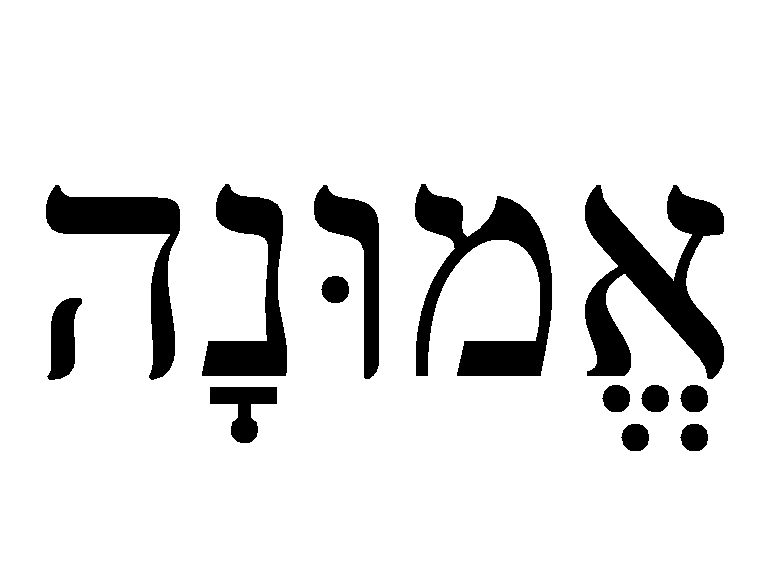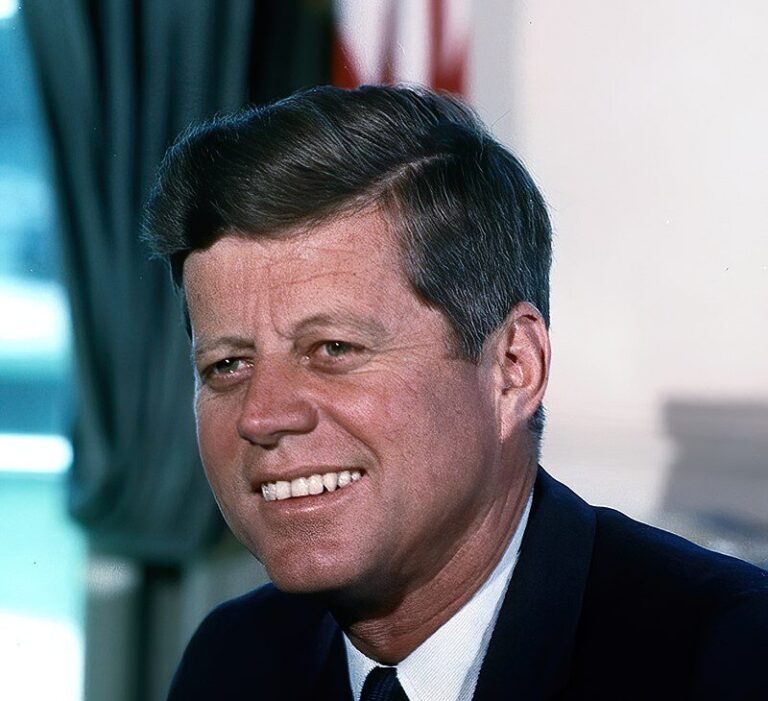Winning the War Against Our Faith

Following in the Footsteps of R' Akiva and Nachman Ish Gamzu
In our last article entitled Rabbi Akiva's Night in the Field which we published just prior to the start of the Festival of Succot, we learned how to face life, build and live by true emunah even in the midst of difficult or even tragic situations. It is brought down in the Shulchan Aruch (Orach Chaim 230:5): לעולם יהא אדם רגיל לומר כל מה דעביד רחמנא לטב עביד (Always, a person should accustom himself to say, 'All that the Merciful One does, He does for good'). This is an important halachah because it sets out in the simplest terms possible how we can build emunah in our lives. As is known, it may be easy to say that we have emunah when everything is going well, but if we really want to find out the truth of the matter, we need to examine our approach when things don't go so well. Do we go into panic mode, become angry or fail to behave kindly and patiently with others, etc. or do we remain calm and serene knowing that everything is in the hands of Hashem for our good?
We understand that Hashem only does good and that His compassion extends throughout the entirety of His creation (see Tehillim 145:9). That being the case, how do we explain events that appear to be terrible (such as what is unfolding before our eyes currently here in Israel)? The truth is that only good descends from Heaven but because of various factors, typically referred to as bad decrees, dinim or judgments, the forces of the Sitra Achra have permission to latch on to the good and 'coat it' so to speak, much like a peel coats or covers the tasty fruit inside. These forces cannot affect the good that is emanating from Hashem. All they can do is hide the good and disguise it to make it look like it's not really good. And these same external forces, these forces of impurity, seek to trip us up so that we deny the essence of our emunah and actually believe, G d forbid, that G d does bad for us. But R' Akiva taught us that it is critically important to say aloud the words "כל מה דעביד רחמנא לטב עביד" (All that the Merciful One does, He does for good). By speaking aloud this simple statement of faith, we begin the process of peeling the fruit, and eventually, if we merit, we will live to see and taste the good of the fruit that was hidden inside all along. But what if we don't see the good after one day or even after one month or even after many years, G d forbid? Do we give up? No, we continue in our emunah until we merit to witness the good as good, even if it means that we must wait until after we pass from this world.
By way of illustration, we suffered unspeakable horrors during the Shoah, the likes of which had never been seen in the history of the world, and yet within a few short years after the Nazis, may their name be blotted out, were defeated, the State of Israel was established. If we can understand this, then perhaps it will help us to understand that the current war is also just good coated by the klipot. Our response of emunah, or lack thereof G d forbid, will in large part determine the course of the war, the manifestation of revealed rachamim and the speed at which we exit this situation to taste of its good fruit. How come? Because emunah itself is the key to turn everything around, from experiencing good disguised as bad to experiencing the good as truly good.
The question we asked at the end of the last article was, Why did R' Akiva speak aloud his emunah in Aramaic, i.e. כׇּל דְּעָבֵיד רַחֲמָנָא לְטָב (All that the Merciful One does is for good), yet speak in Hebrew after the good was revealed, i.e. כׇּל מַה שֶּׁעוֹשֶׂה הַקָּדוֹשׁ בָּרוּךְ הוּא הַכֹּל לְטוֹבָה (All that the Holy One, blessed be He, does, all is for the best)?
The reason is because the malachim [Heavenly angels] do not understand Aramaic. What difference does that make? The answer is provided in a Tosafot on Berachot 3a (Dibbur Ha-Matkil v'Onin): אומרים קדיש בלשון ארמית לפי שתפלה נאה ושבח גדול הוא על כן נתקן בלשון תרגום שלא יבינו המלאכים ויהיו מתקנאין בנו (We say Kaddish in the Aramaic language because it is a nice prayer and a great praise; therefore, it was established in Aramaic so that the malachim wouldn't understand and become jealous of us). Now, there are two main kinds of malachim, those on the 'Side of Holiness' (Sitra d'Kedusha) and those on the 'Other Side' (Sitra Achra). R' Akiva used Aramaic because he didn't want the malachim of the Sitra Achra to know what he knew, i.e. that the bad with which they tried to trip him up, was really just a peel that they were given permission to place over the good. We are always engaged in a spiritual war. Our enemies know this (whether we are constantly aware of it or not is a separate point), and they do not let up for even a second. R' Akiva understood this war. So what was his strategy? By letting them think that he didn't know what was going on, they let down their guard, so to speak. Since they believed that they were being effective at damaging or even destroying his emunah, their hold on the good weakened. And each new time they were given permission to nourish themselves further from the good that Hashem was sending down, much like a leech sucking off another to live, R' Akiva reiterated his statement of unwavering emunah. He was engaged in tactics of warfare. He was working to arouse the middah of rachamim and to nullify the middah of din. Eventually, R' Akiva's words literally broke the hold that the forces of the Sitra Achra had on the good. At that point, it was revealed to him what was really going throughout the night and how Hashem had been orchestrating events to save his life.
This explains why he said essentially the same thing after the good was revealed to be good, yet in Hebrew not Aramaic. There was no longer any need to fool the malachim into thinking that he didn't know their tactics. The battle had been fought and won. The truth could be spoken openly for even the malachim to hear.
Now we come to an even more perplexing story, this one involving one of R' Akiva's teachers, Nachum Ish Gamzu (see Ta'anit 21a). The Jewish leadership felt a need to send a gift to Caesar. It was decided that Nachum should go since his piety was well known and miracles often accompanied him. They filled a chest with precious jewels and pearls and gave it to Nachum to deliver it to Caesar. On the way, he stayed at an inn for the night. During the night, a number of residents of the inn broke into the chest, stole the jewels and refilled the chest, but this time with dirt. Whether Nachum was aware of what had happened during the night is not stated in the Gemara; nevertheless, he set out in the morning and continued his journey to the palace. When he and his entourage arrived, they were given an audience with the emperor. They opened the chest to find only the dirt, whereupon the emperor desired to put them all to death for mocking him.
What was Nachum's response? He merely said, גַּם זוֹ לְטוֹבָה (Also, this is for good). And with those words, the course of events began to change. Eliyahu ha-Navi appeared in the form of one of the emperor's ministers and suggested that this might be the same dirt that Avraham had used in his war against the five kings, that when he threw the dirt up into the air, it turned into swords which slew his enemies.
The emperor decided to test this idea before executing the members of the entourage. There was one province that the Romans were having a very difficult time subduing, so they took the dirt to the battlefield, and lo and behold, it worked! Caesar's army conquered the province. As a result, Caesar ordered that the chest be filled with precious jewels and pearls and given to Nachum as a gift of appreciation. In the end, Nachum was sent off with great honor.
But the story doesn't end there. On the journey homeward, Nachum went right back to that same inn. Completely perplexed by the honor bestowed upon Nachum, the residents inquired as to what had happened and what he had given as a gift to Caesar. He told them that he gave the emperor what he took from the inn. Filled with greed, the residents tore down their inn and brought all of the dirt that was under it to the emperor. They told the emperor that the dirt was really their dirt, not Nachum's dirt, whereupon the emperor tested their dirt in battle. Needless to say, it didn't work. The emperor returned from the battle and executed them all.
Why didn't Nachum Ish Gamzu say what R' Akiva said, כל מה דעביד רחמנא לטב עביד? Alternatively, since R' Akiva was a student of Nachum, why didn't he say what he had (let's assume) been taught by his teacher and rebbe, גם זו לטובה?
Different answers have been given to these questions, but let us suggest a solution that fits well with the theme of this teaching and the previous one. Why was R' Akiva turned away at the inn? Since the Gemara doesn't state the reason, there is no reason to judge the townspeople with ill will in this regard. Let us assume that the inn was merely full and there was no room for R' Akiva and his talmidim. (The fact that the Roman soldiers captured the town and carried off the people into captivity may have been decreed from Heaven for an entirely different matter arising from other considerations.) What else happened? A stormy wind blew out his campfire. Clearly, this was directly from Hashem. Then a cat and a lion killed his rooster and lion, respectively. Again, this is clearly from Hashem. The point is that no people were directly involved in a personal attack against R' Akiva. Things just happened, which he rightly attributed to the doings of Hashem. But with Nachum Ish Gamzu, the situation was quite different. It wasn't a so-called 'act of G d' that replaced the jewels and pearls with dirt. No, it was greedy, malicious people who did so. And that's the difference. What R' Akiva said wasn't relevant in this case. With Nachum, it wasn't so much, 'Whatever the Merciful One does, He does for good,' but rather, 'Also this is for good', i.e. even when people deliberately acted against him in such a way that could have led to his death at the hands of the Roman government, even so he was able to say, 'Also this...' Even when people (as opposed to forces of nature or animals, etc.) are the direct agents who act against me to oppose me or to harm me, even this is for good.
The deep truth is that Hashem also acts through people, people that we may assume have so-called 'free will'. Even so, people are also agents of Hashem in His benevolence to us. (Although beyond the scope of this article, it comes out that free-will may only be free with respect to the individual's perspective. It is not universally free from the perspective of others, and certainly not from Hashem's perspective.)
But Nachum's emunah is even greater than we think, for how did the story end? It ended with him receiving a chest full of jewels, being shown high honors by the officials of the government, and all of those who perpetrated evil against him receiving the just reward of their evil ways. That is the level of gam zu l'tovah—the end good will be even better than the original good that was hidden inside the klipot.
If so, why did the Shulchan Aruch chose to use R' Akiva's story as the basis of the halachic requirement for us and not bring down the account of Nachum Ish Gamzu for the halachah? Perhaps it is because we are all expected to see Hashem's hand in the events that unfold around us. But it is a very high level, which not all of us are expected to reach, to see Hashem's hand in the harmful actions of others who conspire against us for evil. Perhaps it is fair to say that R' Akiva's story teaches us halachah because it is within the reach and requirements of all of us, where Nachum Ish Gamzu's story teaches us a middah of chassidut. It's going above and beyond, but if we can, we should aspire to it for it is lofty indeed and exceedingly rewarding.
The Jewish People are facing the most difficult situation since the Shoah. Our way out of it just might be to apply the teachings in this and the previous article to our current situation.
To see and believe and say with conviction from our heart "גַּם זוֹ לְטוֹבָה" [Gam zu l'tovah] is not living in denial and making light of the seriousness of the situation we are facing. No, it is acknowledging the truth of what we pray three times a day in Modim of the Shemoneh Esreh, הַטּוֹב כִּי לֹא־כָלוּ רַחֲמֶיךָ וְהַמְרַחֵם כִּי לֹא־תַמּוּ חֲסָדֶיךָ (You are the 'Good One' because your mercies never cease and You are the 'Merciful One” because your acts of loving kindness never end). 'Never cease' and 'never end'—even in times of tragedy and even during war. Do we really believe this or have we just been paying lip service all these years?







I cannot understand how you would equate the establishment of the state of Israel with Hashem’s Tova after the Shoah. The Zionists since the establishment, have caused spiritual destruction and countless deaths on both sides. The only good I can see from this churban that still continues, r’l, is that finally many more Jews are waking up to their lies.
You're right. I am not justifying the evils of our current Erev Rav-run regime and all that they have done to try to destroy Torah (chas v'shalom) in the world and amongst the Jewish People for the past many, many decades (even from before 1948). There is chesed and there is chesed. What do I mean? There's chesed she'b'chesed. This is clearly not the chesed we have with the zionists, with the medinah. There's also chesed she'b'gevurah (which might be the case here), or perhaps even chesed she'b'hod. Remember, hod is more gevurah-dik than gevurah. In spite of what they have tried to do (and continue to do), there was no other place in the world that had as much Torah learning than here. It was still an aspect of kibbutz galuyot, even if we didn't merit it at a higher level. And not only that, but the tzaddikim that have been here over the past 70 years is beyond anything in chul. There is no doubt about that.